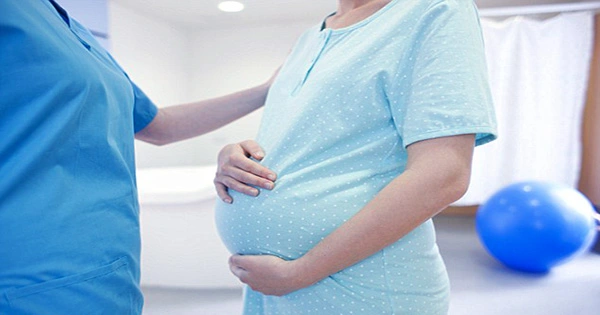The consultant obstetrician and gynecologist, Dr. Jean Nassar, has discussed conception.
According to the doctor, poor diet, smoking, and pollution are just a few examples of environmental and lifestyle variables that have a negative effect on fertility.
Nassar, an expert in in-vitro fertilization, claimed that the incidence of infertility has sharply increased recently, not only in Nigeria but also globally.
Infertility is an illness of the male or female reproductive system, according to the World Health Organization, and is indicated by the inability to conceive after 12 months or more of regular, unprotected sexual activity.
The head of the IVF department at St. Georges Hospital University Medical Center in Lebanon, a gynecologist, said in an interview with PUNCH HealthWise that although infertility rates may be rising, there are still numerous effective treatments available based on the cause of infertility.
The fertility expert said, “There are a number of variables that may be causing this increase, including women delaying having children in order to pursue their education, careers, or for financial reasons.
“However, environmental and lifestyle variables that harm fertility include smoking, poor nutrition, pollution, obesity, and excessive alcohol consumption.
“Our fertility is affected by a variety of lifestyle variables. In order to keep a normal Body Mass Index, it is important to concentrate on healthy behaviors like eating a balanced diet, quitting smoking, drinking in moderation, exercising regularly, and managing stress.
He claims that leading a wholesome lifestyle can help to increase a person’s fertility.
Cryopreservation, according to Nassar, is the greatest method for preserving fertility, particularly for women who want to store high-quality eggs before their reproductive clocks start to run out.
Infertility, according to the WHO, impacts millions of people globally who are of reproductive age and has an effect on their families and communities.
According to WHO estimates, between 48 million pairs and 186 million people worldwide struggle with infertility.
The organization for global health emphasized that addressing infertility could lessen gender disparity.
The WHO continued, “Infertility has significant adverse social effects on the lives of infertile couples, and especially on the lives of women, who frequently experience violence, divorce, social stigma, emotional stress, depression, anxiety, and low self-esteem.
Although there is no formal data on the number of Nigerians who struggle with infertility, it is predicted that 25% of Nigerian couples will have trouble getting pregnant and may need assisted reproductive methods like IVF.
Regular checkups and consuming a healthy diet, in addition to identifying the cause of infertility early, could help, according to the maternal health specialist who also works at One Wellness Centre in Lagos. She added that early detection improves the effectiveness of treatment.
The gynecologist explained the various infertility treatments available, saying that “in some instances, surgery may be necessary before starting infertility treatment.
“Please take note that infertility therapy should vary from couple to couple based on a number of factors we consider during our consultation.
The findings of the tests we ask for will be used to suggest a personalized strategy based on the couple’s requirements and their health.
As a reproductive clinic, we provide all forms of care, including surrogacy, donation, and cryopreservation, as well as planned sexual activity, intrauterine insemination, and intracytoplasmic sperm injection.
According to Nassar, all infertility therapies are risk-free for both the women receiving them and the embryos.
But he continued, “The laboratory, the medical team, and the doctor’s expertise all contribute to the procedure’s overall safety.
Multiple pregnancies brought on by the transfer of several embryos and Ovarian Hyperstimulation Syndrome, which can be avoided in rare circumstances, are some risks associated with IVF therapy.
The fertility expert went on to say that although IVF is frequently used as a treatment for infertile couples, it can also be applied in other circumstances.
The most typical is when a pair has a genetic disorder that could be passed on to their offspring; in this situation, preimplantation genetic testing during IVF is advised to ensure that only genetically normal embryos are transferred.
“Those who want a particular gender for the baby can also use IVF with PGT. IVF is also suggested for couples who want to use their gametes for surrogate, he added.
According to the gynecologist, there is no proof that babies conceived through IVF are less healthy and robust medically than babies conceived naturally, contrary to popular belief regarding IVF babies.
He mentioned that studies had revealed that both naturally conceived infants and those born through IVF require the same level of monitoring.
Source: https://www.tori.ng/news/229064/why-infertility-rate-rising-drastically-gynaecolog.html
















